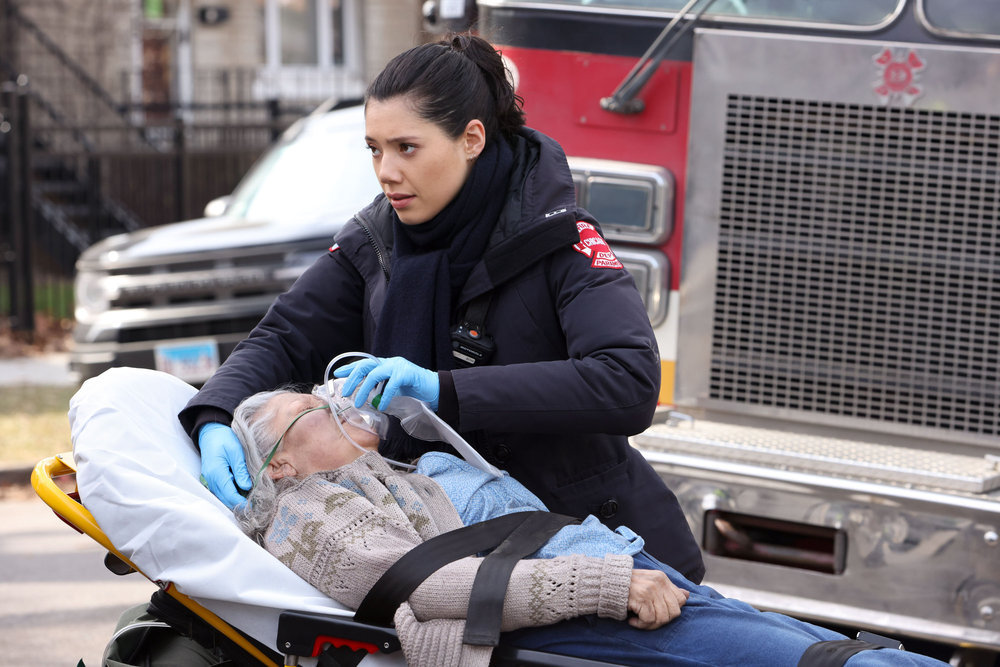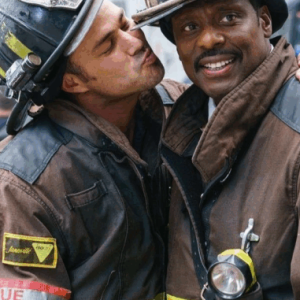In a show where roaring fires and life-or-death emergencies are standard fare, the Chicago Fire episode “Red Flag” dares to slow down and get personal. At the heart of the chaos stands Stella Kidd—fierce, focused, and fragile in a way we’ve rarely seen before. This is her episode, and it’s a quiet triumph in storytelling.
The Call That Changed Everything
The episode begins with a large-scale warehouse fire, seemingly routine for Firehouse 51. But as the situation escalates and the floor collapses beneath two trapped civilians, Stella is forced to make a split-second decision—go in without backup or risk losing both victims.

She goes in.
On paper, it’s the kind of bravery Chicago Fire celebrates. But when the dust settles and the bodies are pulled from the wreckage—one alive, one not—it becomes clear that something deeper was stirred within Stella. It wasn’t just the physical risk. It was the mental and emotional cost of always being “the strong one.”
As lieutenant, Stella has faced fires, explosions, even near-death experiences. But “Red Flag” shows the toll that leadership takes when the adrenaline wears off and all that remains is doubt.
A Crisis of Confidence

Back at the firehouse, the energy around Stella shifts. Her usually upbeat tone with Severide becomes clipped. She second-guesses herself in meetings. In one standout scene, she stands alone in the locker room, staring at her reflection, replaying the moment she made the call.
What’s haunting isn’t that she failed—she didn’t. What haunts her is that she hesitated to trust her instincts. It’s subtle, but the writers let her unravel just enough to make us feel the weight. This is the cost of command.
Severide notices, of course. His quiet attempts to comfort her—hand on shoulder, a lingering glance—only seem to push her further into isolation. She doesn’t want reassurance. She wants clarity.
The Confrontation
The emotional centerpiece of the episode is a conversation between Stella and Chief Boden. It’s a rare one-on-one that peels back both their armor. She admits she’s not sure she’s cut out for this anymore—not the fire, but the responsibility.
Boden doesn’t sugarcoat it. He tells her plainly: “Leadership is lonely. And if it doesn’t scare you sometimes, you’re not doing it right.” It’s a powerful moment, not because it solves anything, but because it gives Stella—and the audience—permission to doubt, and still continue.
It’s in this moment that the title “Red Flag” becomes poetic. It’s not just a reference to the fire call. It’s a metaphor for Stella’s internal warning signs—the burnout, the fear, the pressure. And rather than ignoring them, she finally begins to confront them.
More Than Flames
What makes this episode stand out isn’t a spectacular fire or explosive twist. It’s the choice to focus on the invisible weight carried by a woman in charge. For all the physical danger the show depicts, “Red Flag” reminds us that the psychological battles are just as fierce.
In the final scene, Stella steps into the bunkroom, sits beside Severide, and simply says, “I need a minute.” No bravado, no defenses—just honesty. And he doesn’t say a word. He just stays. That silence is the loudest expression of love and understanding the show has ever given us.
Why “Red Flag” Matters
Chicago Fire often thrives on spectacle. But “Red Flag” proves that when it slows down and lets its characters simply feel, it’s capable of something far more lasting. It’s an episode about leadership, vulnerability, and the quiet courage it takes to admit when you’re not okay.
For fans of Stella Kidd, it’s a defining chapter. For fans of the show, it’s a reminder that Chicago Fire is not just about what happens during the emergencies—but what lingers long after





